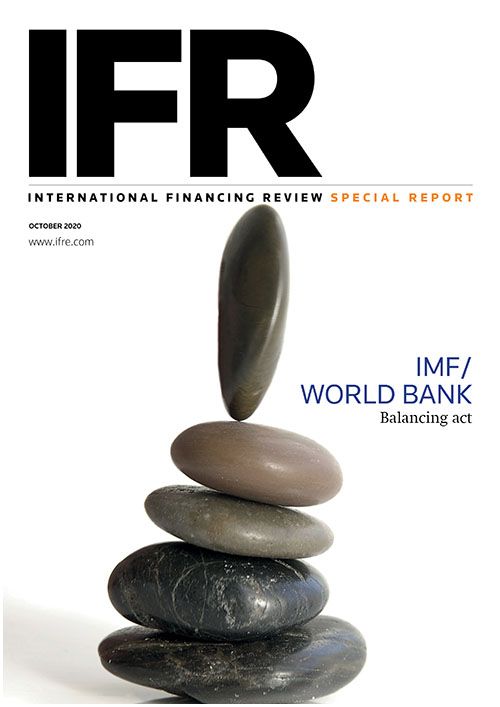There can be no doubt about the event that has dwarfed all others this year as far as a large proportion of people across the globe are concerned. The coronavirus pandemic and its repercussions have been front and centre of thinking and planning from a macro to a micro level and look set to remain there for some time to come.
The economic fallout from enforced lockdowns and changes in the way in which business is conducted was addressed by central banks and governments around the world, which moved swiftly to support industry and the population alike, announcing measures that would have been virtually unimaginable just a short time before.
But unilateral action can only achieve so much in the face of a worldwide situation, not to mention in the case of less affluent countries whose resources were stretched to the limit even before the pandemic. If ever there was a time for the multilateral development banks and international institutions to step up to the plate, this was it, and they proved themselves willing and able to act in a relatively timely fashion - especially by historical standards.
Grasping not only the immediate fiscal thistle but also looking to the longer term, they and the individual authorities put in place myriad schemes and programmes that aspired to support and maintain wellbeing, not only financial but mental.
Many had already embarked on the educational, social and governance voyage, but existing long-term projects were joined by more time-sensitive strategies, giving a boost to and broadening the scope of an ESG sector that was looking for ways to develop in any case.
The danger as some saw it in all the billions pumped into the system and the requisite borrowing that went alongside it was that it could have left some lesser credits marooned on the sidelines and shut out of the market. But high-grade credit came with a high-grade price tag, with all the additional cash available chasing yields and spreads tighter. This meant those offering greater returns were far from denied access but were more likely to be welcomed, thus confounding those who feared the worst for the emerging markets.
But there are always those that require assistance, and this was just as much the case before Covid-19 struck as it was afterwards. Institutions such as the IMF and the World Bank were already active in many spheres around the globe, the tricky balancing act they need to perform being to address new, headline-grabbing events while avoiding neglecting pre-existing, deeper-rooted situations.
To see the digital version of this report, please click here
To purchase printed copies or a PDF of this report, please email gloria.balbastro@refinitiv.com




























